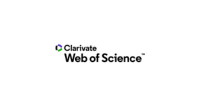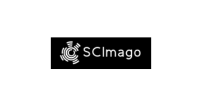O CONTROLE DO USO DE ANIMAIS PARA ENSINO E PESQUISA
DOI:
https://doi.org/10.5380/avs.v15i3.16364Palavras-chave:
aulas práticas com animais, ética, experimentação, legislação, regulamentação, Animals in practical lessons, ethics, experimentation, legislation, regulationResumo
A regulamentação da experimentação animal está fundamentada na preocupação ética de não se infringir sofrimento aos animais, demonstrada pelos movimentos sociais de proteção animal, pela legislação abordando o tema, pelas Comissões de Ética no Uso de Animais, entre outros. O objetivo desta revisão foi estudar o controle do uso de animais para ensino e pesquisa em alguns países, escolhidos aleatoriamente, comparando-os com a situação brasileira e paranaense. O controle é feito por diferentes instituições em diferentes países, a saber: pelo Presidente e Parlamento na África do Sul; instituição autônoma no Canadá; Departamento da Agricultura nos Estados Unidos; Ministério da Educação, Cultura, Esportes, Ciência e Tecnologia no Japão; Ministério Federal de Alimentos, Agricultura e Proteção do Consumidor na Alemanha; Ministério da Agricultura na França e Suécia; Ministério da Saúde, Bem-estar e Esporte na Holanda; Home Office no Reino Unido; Conselho Federal na Suíça; e Conselho Nacional de Saúde e Pesquisa Médica na Austrália. No Brasil o controle é feito pelo Ministério da Ciência e Tecnologia, havendo duas Leis Federais, um Decreto e uma Resolução; no Paraná, há o Código Estadual de Proteção aos Animais. O conhecimento do trabalho de instituições responsáveis pelo controle da experimentação animal em diferentes países pode auxiliar o aprimoramento deste processo no Brasil. Tal controle é urgente pela necessidade de proteção do bem-estar animal e pela preocupação crescente da sociedade.
Downloads
Como Citar
Edição
Seção
Licença
Autores que publicam nesta revista concordam com os seguintes termos:
- Autores mantém os direitos autorais e concedem à revista o direito de primeira publicação, com o trabalho simultaneamente licenciado sob a Creative Commons - Atribuição 4.0 Internacional que permite o compartilhamento do trabalho com reconhecimento da autoria e publicação inicial nesta revista.
- Autores têm autorização para assumir contratos adicionais separadamente, para distribuição não-exclusiva da versão do trabalho publicada nesta revista (ex.: publicar em repositório institucional ou como capítulo de livro), com reconhecimento de autoria e publicação inicial nesta revista.
- Autores têm permissão e são estimulados a publicar e distribuir seu trabalho online (ex.: em repositórios institucionais ou na sua página pessoal) a qualquer ponto antes ou durante o processo editorial, já que isso pode gerar alterações produtivas, bem como aumentar o impacto e a citação do trabalho publicado.













